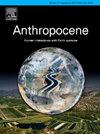A Community-Based Nature Understanding Framework for exploring socio-ecological dynamics in rural Romania
IF 3.3
2区 地球科学
Q2 ENVIRONMENTAL SCIENCES
引用次数: 0
Abstract
This study introduces the Community-Based Nature Understanding Framework (CBNUF) to explore social-ecological dynamics in rural central Romania. Using insights from participatory workshops, we examined how local stakeholders perceive nature, its vulnerabilities, and sustainable pathways forward. Six main categories emerged through grounded theory and causal network modeling: Defining nature, Nature’s role (past, present, and future), Challenges and vulnerabilities, Governance and community action, Opportunities for innovation, and Barriers to sustainable development. These were aligned with Nature-based Solutions principles, emphasizing co-benefits and participatory governance. The framework adopts a hierarchical structure of “parent,” “child,” and “sibling” categories, reflecting how local perceptions shape actions and constraints without enforcing strict causality. The foundational Defining nature category captures how communities understand and value the environment, influencing all other categories. Shifting from typical ecological-loss narratives, our vulnerability-focused approach enabled residents to express adaptive concerns and strategies. In Saschiz (Mureș county), locals linked orchard decline to seasonal drought, prompting collective initiatives like festivals and agro-tourism. These insights reveal how cultural practices intertwine with ecological realities. By centering local knowledge and lived experience, the study offers a grounded perspective on adaptive governance and resilience amid socio-environmental change in the Anthropocene.
探索罗马尼亚农村社会生态动态的基于社区的自然理解框架
本研究引入基于社区的自然理解框架(CBNUF)来探索罗马尼亚中部农村的社会生态动态。利用参与式研讨会的见解,我们研究了当地利益相关者如何看待自然、其脆弱性和可持续发展道路。通过扎根理论和因果网络建模,出现了六个主要类别:定义自然、自然的角色(过去、现在和未来)、挑战和脆弱性、治理和社区行动、创新机会和可持续发展的障碍。这些都符合基于自然的解决方案原则,强调共同利益和参与性治理。该框架采用了“父”、“子”和“兄弟”类别的层次结构,反映了在不强制执行严格因果关系的情况下,局部感知如何塑造行动和约束。基本的“定义自然”类别捕捉社区如何理解和重视环境,影响所有其他类别。从典型的生态损失叙述转变为我们以脆弱性为中心的方法,使居民能够表达适应性关注和策略。在萨斯奇兹(穆雷乌斯县),当地人将果园的衰落与季节性干旱联系起来,推动了节日和农业旅游等集体活动。这些见解揭示了文化习俗是如何与生态现实交织在一起的。通过以当地知识和生活经验为中心,该研究为人类世社会环境变化中的适应性治理和复原力提供了一个有根据的视角。
本文章由计算机程序翻译,如有差异,请以英文原文为准。
求助全文
约1分钟内获得全文
求助全文
来源期刊

Anthropocene
Earth and Planetary Sciences-Earth and Planetary Sciences (miscellaneous)
CiteScore
6.30
自引率
0.00%
发文量
27
审稿时长
102 days
期刊介绍:
Anthropocene is an interdisciplinary journal that publishes peer-reviewed works addressing the nature, scale, and extent of interactions that people have with Earth processes and systems. The scope of the journal includes the significance of human activities in altering Earth’s landscapes, oceans, the atmosphere, cryosphere, and ecosystems over a range of time and space scales - from global phenomena over geologic eras to single isolated events - including the linkages, couplings, and feedbacks among physical, chemical, and biological components of Earth systems. The journal also addresses how such alterations can have profound effects on, and implications for, human society. As the scale and pace of human interactions with Earth systems have intensified in recent decades, understanding human-induced alterations in the past and present is critical to our ability to anticipate, mitigate, and adapt to changes in the future. The journal aims to provide a venue to focus research findings, discussions, and debates toward advancing predictive understanding of human interactions with Earth systems - one of the grand challenges of our time.
 求助内容:
求助内容: 应助结果提醒方式:
应助结果提醒方式:


